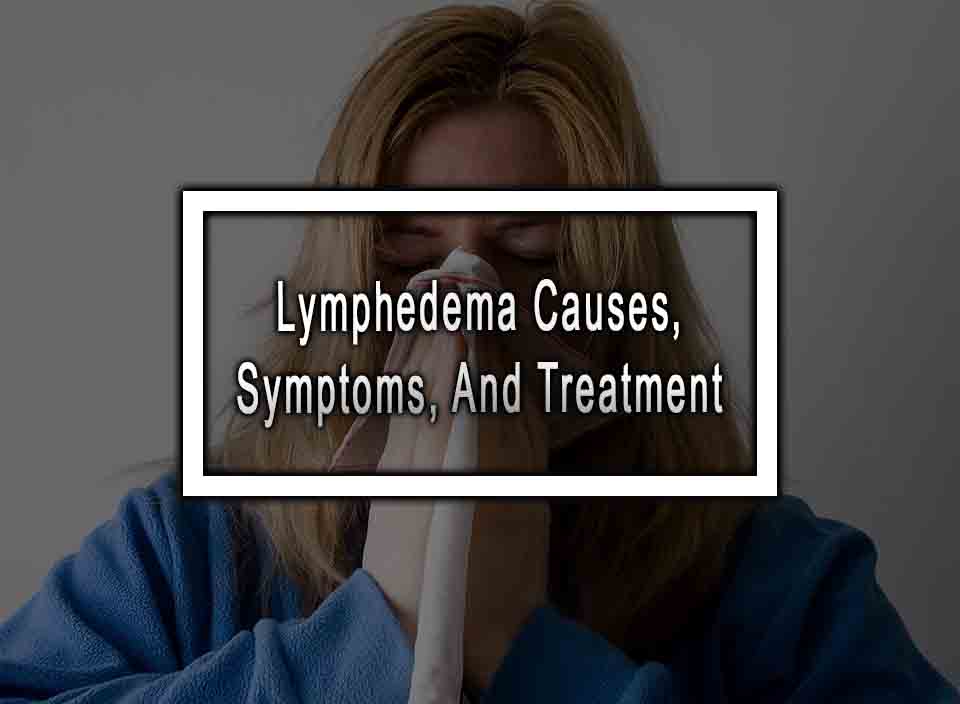Table of Contents
ToggleHere Are The Lymphedema Causes, Symptoms,
And Treatment
Lymphedema is a condition that affects millions of people worldwide. This is a chronic condition that occurs when the lymphatic system is damaged, causing a buildup of lymphatic fluid in the affected area. This can lead to swelling, pain, and discomfort, making it difficult for the patient to perform daily tasks. In this article, we will discuss lymphedema causes, symptoms, and various treatment options.
What is Lymphedema?
Lymphedema is a condition that occurs when the lymphatic system is damaged or blocked, causing a buildup of lymphatic fluid in the affected area. The lymphatic system is a complex network of vessels, tissues, and organs that work together to transport lymphatic fluid throughout the body. This fluid contains white blood cells that fight against infections and diseases.
The lymphatic system is responsible for maintaining the body’s fluid balance and removing excess fluid from tissues. When the lymphatic system is damaged or blocked, the lymphatic fluid cannot flow properly, leading to a buildup of fluid in the affected area. This can cause swelling, pain, and discomfort, making it difficult for the patient to perform daily tasks.
Lymphedema Causes
Lymphedema can be caused by various factors, including:
Surgery: In some cases, surgery can damage the lymphatic system, leading to lymphedema. This is particularly true for surgeries that involve the removal of lymph nodes, such as breast cancer or prostate cancer surgery.
Radiation therapy: One of the lymphedema causes is radiation therapy, which can damage the lymphatic system, causing lymphedema. This is particularly true for radiation therapy that is directed at the lymph nodes.
Infection: In some cases lymphedema causes is an infection, which can damage the lymphatic system, leading to lymphedema. This is particularly true for conditions that affect the lymph nodes.
Congenital: Some people are born with lymphedema, which is known as primary lymphedema. This is a rare condition that occurs when the lymphatic system does not develop properly.
Symptoms of Lymphedema
The symptoms of lymphedema can vary depending on the severity of the condition. Some common symptoms include:
Swelling: The affected area may appear swollen or puffy.
Pain: The affected area may be painful or tender to the touch.
Limited range of motion: The affected area may feel stiff or tight, making it difficult to move.
Skin changes: The skin in the affected area may become thickened or hard, making it difficult to bend or move.
Infections: People with lymphedema are at a higher risk of developing infections, as the lymphatic system is not able to fight off infections as effectively.
Treatment of Lymphedema
There are various treatment options available for lymphedema, including:
Compression therapy: Compression therapy involves wearing compression garments, such as sleeves or stockings, to help reduce swelling and improve circulation.
Manual lymphatic drainage: This is a specialized massage technique that helps to stimulate the lymphatic system and reduce swelling.
Exercise: Regular exercise can help improve circulation and reduce swelling.
Skincare: People with lymphedema need to take extra care of their skin, as they are at a higher risk of developing infections.
Surgery: In some cases, surgery may be recommended to remove excess tissue or to improve the function of the lymphatic system.
Conclusion
Lymphedema is a chronic condition that can have a significant impact on a person’s quality of life. It is important to seek treatment as early as possible to prevent the condition from worsening. There are various treatment options available for lymphedema, including compression therapy, manual lymphatic drainage, exercise, skincare, and surgery. With the right treatment, people with lymphedema can manage their symptoms and maintain a good quality of life.
Lymphedema FAQ
Here are the most common questions about lymphedema.
Can lymphedema be cured?
While there is no cure for lymphedema, it can be managed with proper treatment. This may include compression garments, manual lymphatic drainage (MLD), exercise, and skincare. In some cases, surgery may also be recommended to remove excess tissue or redirect lymphatic flow.
Is lymphedema a permanent condition?
Lymphedema is typically a chronic condition, meaning that it is ongoing and may require lifelong management. However, with proper treatment, most people with lymphedema are able to control their symptoms and maintain a good quality of life.
How can I reduce my risk of developing lymphedema?
If you are at risk for lymphedema (for example, if you have had cancer treatment that involved lymph node removal or radiation), there are some steps you can take to reduce your risk of developing the condition. These may include maintaining a healthy weight, exercising regularly, avoiding injuries or infections in the affected area, and wearing compression garments as recommended by your healthcare provider.
Are there any complications associated with lymphedema?
If left untreated, lymphedema can lead to worsening swelling, chronic inflammation, and an increased risk of infections like cellulitis. In severe cases, lymphedema can also cause permanent damage to the affected limb or organ. However, with proper management, the risk of complications is greatly reduced.
More like this: 7 Foods To Avoid With Goiter
